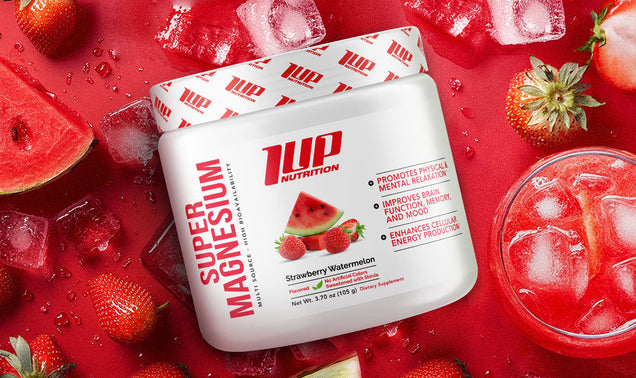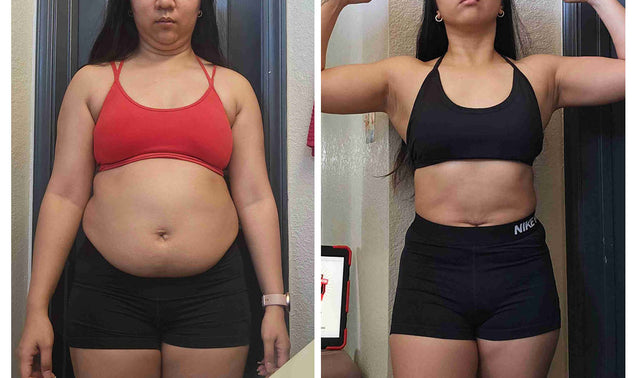It’s no secret or surprise that our bodies change (both mentally and physically) as we age.
Whereas hormones are raging from puberty through early adulthood, they start to slowly decline past the age of 30. This is part of the reason that metabolism slows over the course of your life.
Additionally, our body's ability to heal also dwindles as the years go on by, which is in part due to your body’s natural collagen production declining. This is one of the many reasons we created a delicious-tasting, high-quality collagen supplement.
With all this in mind, you might be wondering if you need to tweak your diet and/or training as you age.
Here are our top expert nutrition tips to keep your energized and performing to the best of your abilities no matter what age you are!
Nutrition Tips for Your 20s
Develop Healthy Habits
One of the best things you can do now to ensure a long, healthy life is to develop healthy habits, such as exercising regularly, eating a healthy diet, and getting enough sleep each night. If you can engrain these habits in early adulthood, they’ll be second nature as you progress through your decades in both fitness and life in general.
In your 20s, it’s also important to be on the lookout for dietary pitfalls (fad diets, detoxes, cleanses, etc.). These can lead to an unhealthy relationship with food and make it exceedingly difficult to both reach your goals and establish/maintain good habits.
Rather than worrying about if you’re “carb sensitive” or in need of a juice cleanse, focus on incorporating a wide variety of healthy and delicious foods in your diet from all the food groups -- fruits, vegetables, lean proteins, healthy fats, whole grains, nuts, seeds, and legumes.
With that in mind, now in your 20s is also the time to learn to cook (if you haven’t been doing so already).
Eating out can be fun on occasion (e.g. celebrating a birthday party), but relying on takeout or packaged meals is a recipe for disaster. In addition to being multiple times more expensive than buying and cooking your own food, prepared food is also higher in calories, fat, refined carbs, and sodium while usually being lower in fiber and protein, both of which help keep you feeling full.
If you don’t know how to cook, dedicate some time to searching out some recipes or recipe books, scouring YouTube for follow-along, easy to fix recipes, and/or calling up your mom or grandma and asking them to walk you through how to cook some of your favorite childhood foods!
Nutrition Tips for Your 30s
Be Consistent
After establishing healthy habits in your 20s, the biggest nutrition tip for your 30s is to be consistent with those habits (i.e. keep doing what you’re doing...provided it got you the results you wanted in your 20s).
More likely than not, daily life in your 30s is more chaotic than in your 20s. Many of you may have advanced in your careers and/or started a family. This can make it more challenging to both stay on track with your meal plan and hit the gym with regularity.
We highly encourage you to organize your days to the greatest extent possible and stick to it, if possible.
We understand that “life happens” and some days, it’s all you can do to grab a whey protein shake (or protein bar) in between meetings, but so long as you’re staying consistent with your diet and training more often than not, you’ll still get the results you want (or maintain those previous gains!).
At the very least, make it a goal each day to eat three well-balanced meals with a solid base of lean protein. The rest of your plate can be filled with complex carbohydrates (fruits, veggies, whole grains) and healthy fats. This also helps keep blood sugar and energy levels stable throughout the day, which helps you avoid binging on unhealthy (i.e. high calorie) snacks.
Since we already brought up the topic of life being more hectic in your 30s compared to your 20s (generally speaking), we’d be remiss to not mention the topic of stress management.
Chronic daily stress is something that can torpedo your fitness, relationships, productivity, and sleep. It’s absolutely essential to take stock of your sources of stress and take measures to either reduce your exposure to them and/or improve how you handle stress.
Some things you can do to improve stress management, include:
- Limiting time spent on social media
- Yoga
- Meditation
- Exercise
- Journaling
- Reading
- Going for a walk in nature (away from your phone)
- Talking to a friend, relative, or mental health professional
Nutrition Tips for Your 40s
Bone Health
As you begin to enter middle adulthood (late 30s and early 40s), hormone and collagen production begin to decline, and so too can the body’s bone mass. Women in particular are susceptible to losing calcium from their bones, which increases the risk for osteopenia and osteoporosis.
To help counteract potential bone degradation, make sure to continue to perform resistance training as well as consume enough dietary protein and calcium.
Foods high in calcium include:
- Milk
- Cheese
- Yogurt
- Cottage cheese
- Whey protein
- Dark leafy greens (kale, collard greens, etc.)
- Sardines
- Almonds
- Fortified cereals
We also can’t emphasize the importance of consuming enough vitamin D, either.
Vitamin D is an essential fat soluble vitamin that also acts as a precursor to several important hormones in the body. Vitamin D also plays key roles in bone health and immunity.
Our bodies naturally synthesize vitamin D when our skin is exposed to direct sunlight; however, most people don’t spend enough time out in the sun.
As such, it’s important to supplement with vitamin D... all the more so if you live in northern climates, which don’t get as much direct sunlight exposure as locations closer to the equator.
We’ve included a full serving of Vitamin D3 in both our men’s and women’s premium-quality multi-vitamins, Multi-Go Men & Multi-Go Women, as well as our Women’s hormone support supplement, aptly called Hormone Support Plus.
Nutrition Tips for Your 50s
Maintain Lean, Toned Muscle
As you age, the body becomes more prone to muscle breakdown. This is due to a few factors. Most people tend to stop resistance training as they get older and tend to not eat as much protein. The body also tends to utilize protein less efficiently as we age, which means your protein requirements actually increase as you age.
The good news you can stave off this natural muscle wasting by staying physically active (i.e. continue resistance training), getting enough sleep, and consuming enough protein.
Our favorite sources of protein (regardless of age) include:
- Lean beef
- Chicken
- Turkey
- Pork
- Fish (salmon, mahi mahi, grouper, redfish, etc.)
- Shellfish (shrimp, crab, clams, mussels, etc.)
- Milk
- Yogurt
- Cottage cheese
- Whey protein powder
- Eggs
- Soy
- Other plant-based proteins (nuts, seeds, legumes, and vegan protein powder)






